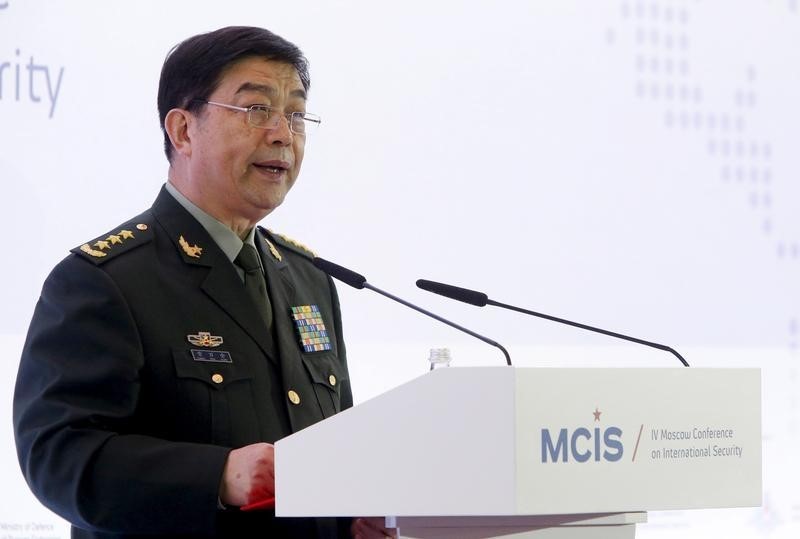BEIJING (Reuters) - China's defence minister told the head of Japan's National Security Council on Friday that Japanese legislation that could see troops sent to fight abroad for the first time since World War Two would "complicate" regional security.
Sino-Japanese ties, long bedevilled by China's memories of Japan's wartime aggression and disputed islands in the East China Sea, have improved since Japanese Prime Minister Shinzo Abe met Chinese President Xi Jinping at an Asia-Pacific summit in Beijing in November.
The legislation, pushed through Japan's lower house of parliament on Thursday, would drop a ban on collective self-defence or fighting to defend a friendly country like the United States.
Chinese defence chief Chang Wanquan told Shotaro Yachi, who is a close ally of Abe's, that the passing of the bill was an "unprecedented move", state news agency Xinhua said, after the pair met in Beijing.
"This move will have a complicated influence on regional security and strategic stability," the news agency said, paraphrasing Chang.
He "urged the Japanese to learn from history, respect major security concerns of its neighbours and not to do harm to regional peace and stability", Xinhua added.
China's Foreign Ministry said on Thursday the legislation called into question Japan's post-war commitment to "the path of peaceful development".
During a separate meeting with Yachi, Chinese Premier Li Keqiang said that while both countries wanted to improve ties, there were still many "sensitive and complex" issues and they needed to manage their differences.
"Whether relations are good or bad does not only affect the well being of both our countries' people, but has an important effect upon regional peace, stability and prosperity," Li said, according to a government statement.
Xi and Abe met for a second mini-summit in April at an Asia-Africa leaders' gathering in Indonesia and Japan wants to keep the thaw on track, while ensuring China realises the risks of an increasingly assertive maritime military policy.

China is preparing for "high-level political dialogue" with Japan, China's top diplomat, State Councillor Yang Jiechi, told Yachi on Thursday, fuelling speculation of a leaders' summit as early as September.